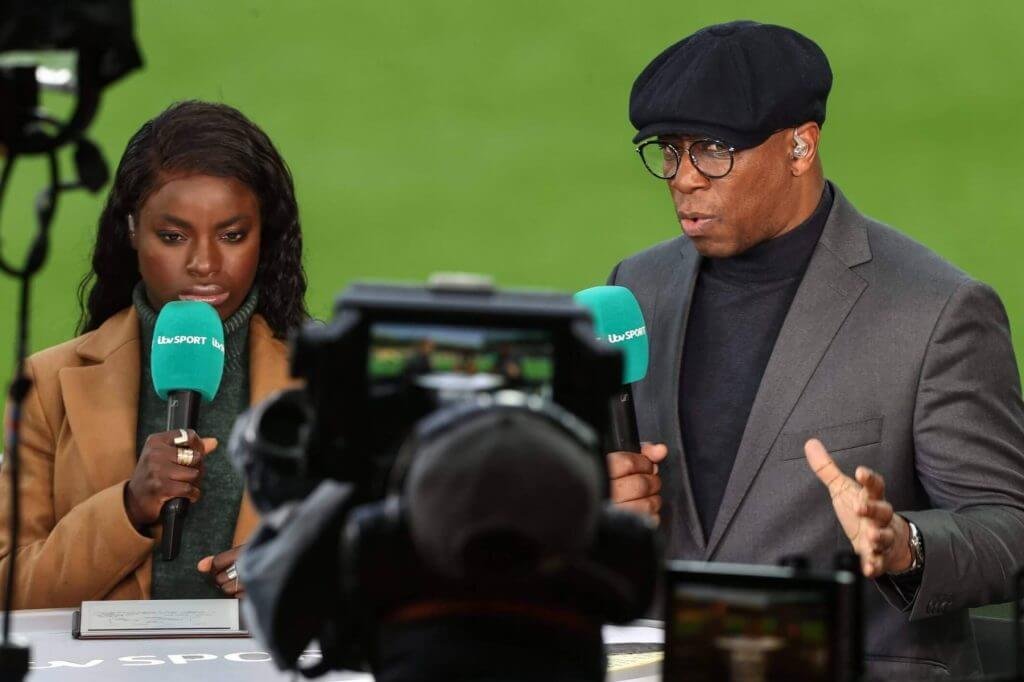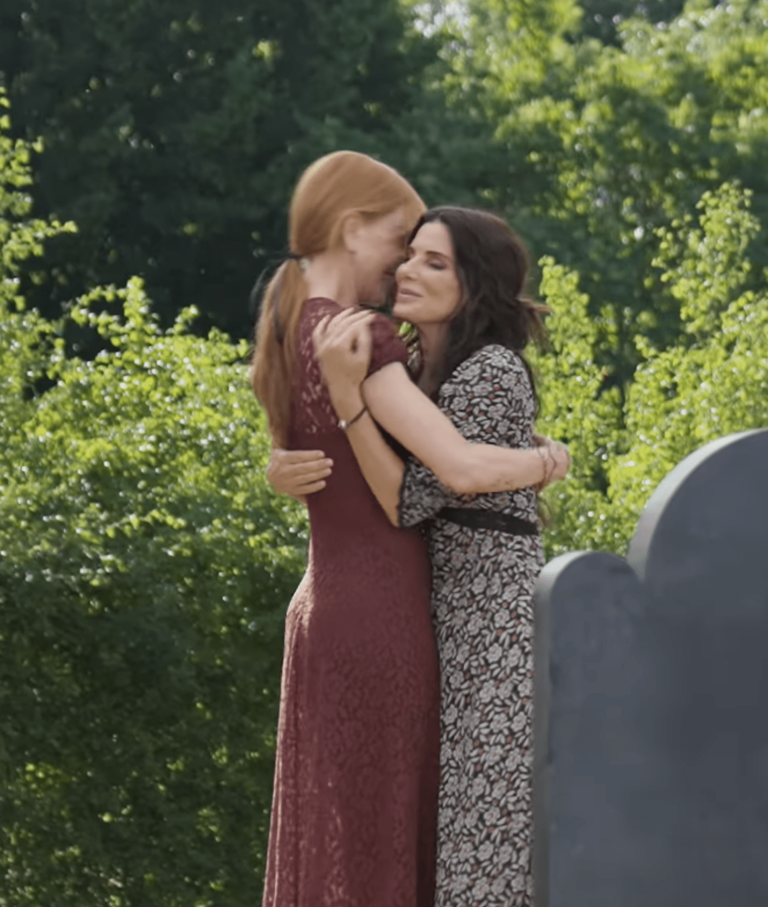Footballer-turned-pundit Eni Aluko stepped away from co-hosting the Women’s Football Awards this week after a comment she made about retired England goalscorer Ian Wright resulted in an onslaught of criticism.
It started with Aluko’s appearance on the BBC’s “Woman’s Hour,” which aired on April 23 and was initially focused on a High Court decision earlier that month that found former footballer Joey Barton to have defamed Aluko. Throughout her conversation with host Clare McDonnell, Aluko spoke about the challenges female broadcasters in football face. However, it has become abundantly clear that many of those stoking the flames of the controversy neglected to listen to the interview in its entirety.
After the dialogue shifted to the challenges that women working in football face, Aluko — who played for Chelsea, Juventus and the Atlanta Beat and Sky Blue FC in the now-defunct Women’s Professional Soccer (WPS) league, as well as for England — called for broadcast networks to double down on their investment in female commentators’ careers, which included protection from and support through sexist and misogynist abuse. The 38-year-old also highlighted the disparity between opportunities provided to men working in women’s football and women working in men’s football.
Aluko was measured and thoughtful in her critiques of the English football media landscape, her opinions neither unique nor provocative, yet necessary nonetheless. And she certainly wasn’t coming for Wright. She wasn’t even the one to bring him up.
“I’m thinking of Ian Wright, who has been an incredible advocate for women’s football but also is used a lot as a pundit,” McDonnell said of the 61-year-old and beloved media personality. “Is this the kind of thing you’re talking about,” she asked Aluko, “that high-profile men come in and that’s taking up space that could be a female appointment?”
Aluko responded, “I’ve worked with Ian a long time and I think he’s a brilliant broadcaster, but I think he’s aware of just how much he’s doing in the women’s game. I think he should be aware of that.”
She reiterated the limited spaces available for female broadcasters and pundits, and how everyone involved in the growth of the women’s game should be conscious of the hard work equality requires.
She did not, however, accuse Wright of dominating the women’s game, nor did she charge him with actively blocking jobs from female broadcasters.
But the reaction to the reports of her interview generated a maelstrom so intense that Aluko issued Wright an apology on Instagram two days later. Wright has since declined to accept Aluko’s apology, a decision he also announced on Instagram along with his wish to “move on” from “any further social commentary directed at anyone on this.”
On April 27, the broadcast company ITV, which has employed both Aluko and Wright, issued a statement in support of Wright.
“Ian’s standing in the sport is beyond question,” the statement read, as first reported by the Guardian. “As one of the UK’s most respected and much-loved footballers and sporting broadcasters, with a career spanning nearly four decades, Ian is an incredible advocate, ally and brilliant broadcaster of women’s football from a grassroots level as well as at the highest international competitions.”
Witnessing the unraveling of this story feels like watching people play football for the first time: everybody wants so desperately to score that they’ve resorted to carelessly booting the ball, ignoring the fact that the most effective way to win means refusing to be distracted by the illusion of an easy target.
According to data collected by the UK-based Black Collective of Media in Sport (BCOMS) in 2022, of the 258 broadcast roles that covered sporting events such as the 2022 men’s Euros, the 2021 Olympics and Paralympics in Tokyo, and Wimbledon, 91 (or 35.3 percent) of those jobs went to women. Black and Asian women made up just 29 of those roles, or 11.2 percent. And for all the inequalities Aluko and Wright face, they are still insulated by the relative privilege of their footballing careers; BCOMS also noted that 69.1 percent of the roles filled by Black and Asian broadcasters belonged to former professional athletes.
A 2015 study published in the International Journal of Organizational Diversity highlighted that although women were well-represented in journalism courses in the UK, they accounted for 7 percent of sports journalism courses, “indicative of distinct gender barriers that continue to discourage women from studying in this field.” That same year, women made up just 5 percent of members in the UK’s Sports Journalists’ Association, according to the study.
Neither Aluko nor Wright should be expected to address questions of equity in a sport and industry that have historically excluded women and Black people. Those questions should be reserved for television executives who decide who gets to appear onscreen and in what capacity.
They are the ones who have been repeatedly allowed to coast on half-hearted and performative attempts at change rather than thoughtful strategy that demands their courage and discomfort. They are the ones who owe apologies to the marginalized candidates they’ve denied opportunities they were likely overqualified for in the first place due to the stagnation that glass ceilings create. They are the ones whose names should be offered up to ravenous comment sections.
These executives are also profiting from this back and forth, from the unpaid labor that Aluko and Wright have performed out of their love for the women’s game and their desire to grow it, as they’ve both expressed. The absence of these elusive, power-wielding executives from such conversations will only restrict that growth.
The unglamorous work of allyship is an awareness of the privileged space one occupies, and Aluko was right to point out the importance of that awareness in her interview. It’s difficult to imagine Wright disagreeing with Aluko’s earlier assertions given the way he uses his platform to champion and share space with women in football media like Flo Lloyd-Hughes, Fadumo Olow, and Jeanette Kwakye, who are regular guests on his podcast, “Wrighty’s House.” (It’s worth noting that Aluko’s wording was a bit muddled on this subject: she first said Wright was “aware of how much he’s doing in the women’s game,” and then said “I think he should be aware of that.” It’s unclear whether the latter statement corrected the first or clarified it, and McDonnell did not follow up with her.)
It’s also difficult to imagine Wright disagreeing with Aluko’s position that men have more opportunities to be involved in women’s football than women do in men’s football, which was the context in which she brought up the matter of equity.
But scarcity is a side effect of the psyche damage of marginalization. It is arguably why both Aluko and Wright have been eager to remove themselves from the unwanted spotlight brought on by all of this. As two of the few Black English football pundits (and certainly some of the most decorated, with the longest tenures), they are more familiar than most with the burden of representation, how every misstep or controversy carries a weightier threat not only to their careers, but those of anybody else like them who might aspire to follow similar paths.
“I think, and this happens in lots of industries, when women stand up for themselves, their career takes a hit,” Aluko told McDonnell. “And what that effectively is saying indirectly is, ‘We’ll pander to this sort of noise,’ because what the Joey Bartons and some male football fans want is for women to get off the TV. That’s what they want.”
It’s telling that ITV’s statement offered support for Wright but failed to even mention Aluko. The absence of any sort of acknowledgment has opened up the question over Aluko’s future with the company as major tournaments — such as the England men’s World Cup qualifiers and the women’s Euros, for which ITV has live and joint-live rights — commence this summer.
Aluko pulling out of her duties at the Women’s Football Awards, an appointment she was originally meant to share with co-hosts Gabby Logan and Jamie Carragher, could also be read as a sign of one of those hits.
In her statement, Aluko described the ceremony as “the first time an event of this scale was created solely to celebrate the incredible achievements in women’s football, and I’m so proud to have been part of it since the beginning.
“However, I’ve decided to take a step back from being part of the hosting lineup this year,” she said. “I don’t want anything to deflect from the joy, recognition, and celebration that this event is all about. This event belongs to the players, coaches, fans, and everyone who has worked tirelessly to elevate the women’s game.”
This article originally appeared in The Athletic.
NWSL, UK Women’s Football
2025 The Athletic Media Company


